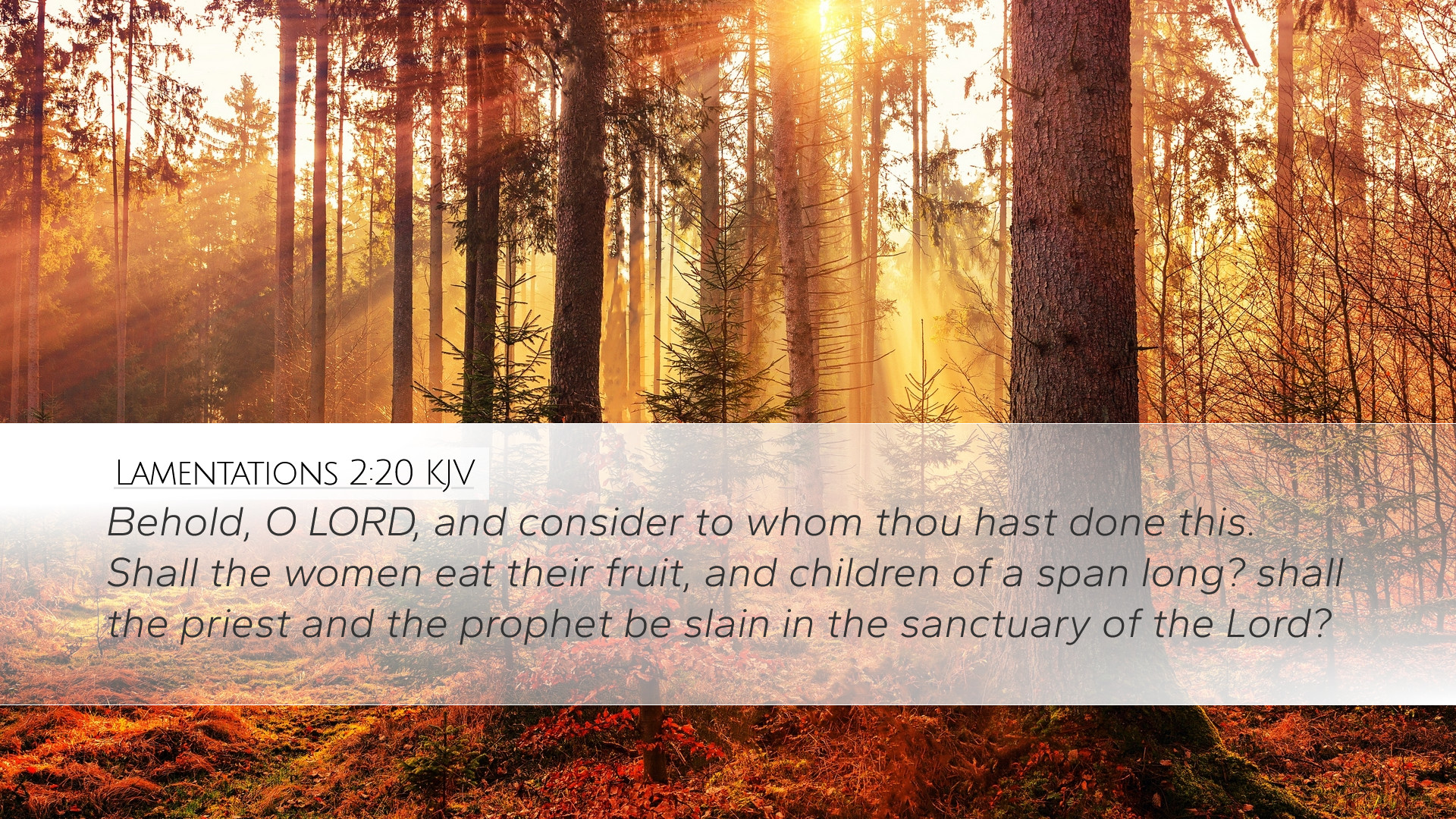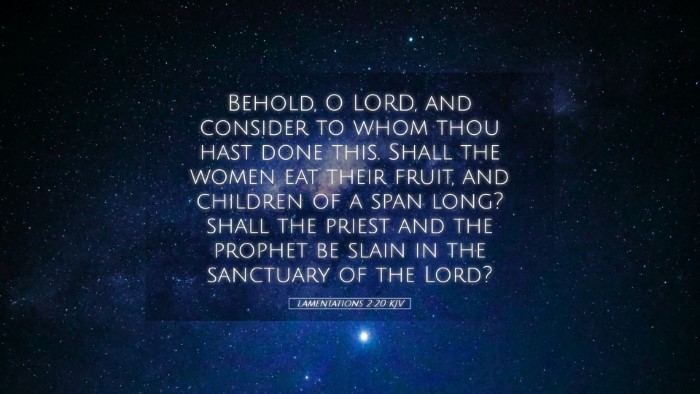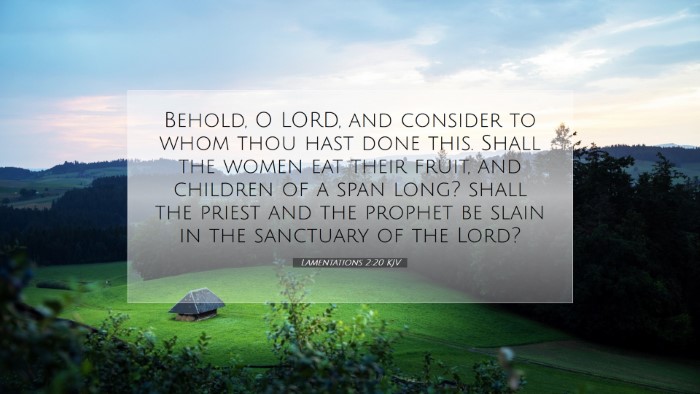Lamentations 2:20 - A Commentary
Verse Context: "Look, O LORD, and consider to whom You have done this. Should the women eat their offspring, the children they have borne? Should priest and prophet be killed in the sanctuary of the LORD?" (Lamentations 2:20, NKJV)
This verse occurs within the context of the profound anguish experienced by the people of Jerusalem after the city’s destruction. It represents an intense lament, highlighting the suffering and despair of the Israelites in the aftermath of their calamity.
Interpretation and Insights
The anguish of the prophet is vividly illustrated in this verse as the speaker turns to God, seeking understanding for the depth of their suffering. The rhetorical questions posed raise issues of morality, ethics, and divine justice.
Matthew Henry's Commentary
According to Matthew Henry, this verse poignantly captures the horrors that engulfed the nation. He emphasizes the grotesque reality that some mothers faced during the siege of Jerusalem, where they were driven to eat their own children, a reflection of the ultimate desperation. Henry notes that such a horrific act was an indictment of God’s judgment, indicating how far the people had strayed from righteousness.
Henry highlights that the women’s sorrow is two-fold: not only are they bereft of their children, but they are also left to endure the shame and trauma of their actions. He urges the readers to remember that this judgment was not arbitrary; it was the culmination of a persistent rebellion against God.
Albert Barnes' Commentary
Albert Barnes provides a historical perspective on the verse, noting that the lamentation reflects a dire situation where even the sanctity of life and familial bonds seemed eradicated. Barnes emphasizes that the inquiries posed in this verse summarize the deep spiritual crisis experienced by the people. The question of whether priests and prophets should die indicates a complete breakdown of religious order and spiritual leadership.
Furthermore, Barnes points out that the prophet’s cry is one of imploration to God for intervention and a plea for acknowledgment of their suffering. This communication illustrates the relationship between humanity and the divine—men pleading for comprehension in times of overwhelming grief.
Adam Clarke's Commentary
Adam Clarke focuses on the stark contrasts seen in this verse. He correlates the suffering of the people with the severity of their sins. Clarke suggests that these questions denote not only current suffering but also invoke thoughts of divine justice and suffering as a consequence of sin. He draws attention to the intensity of hopelessness, portraying the emotional turmoil and devastation faced by the Israelites.
Clarke also highlights that the mention of the sanctuary emphasizes the sacredness of space that has now become tainted by violence and death. This juxtaposition serves as a powerful reminder of lost holiness and the desperate need for reconciliation and repentance.
Theological Implications
This verse serves as a profound reflection on the consequences of collective sin and the painful realities of judgment. It offers critical insights into themes of suffering, justice, and divine retribution—central issues in biblical theology.
- Divine Justice: The verse implies a fundamental theological assertion that God is just, and His righteousness demands a response to sin.
- The Nature of Suffering: It invites theological reflection on the why of suffering. Why do God’s people suffer? The anguish signifies the depth of separation from divine will and fellowship.
- The Role of Leadership: The death of priests and prophets in God’s sanctuary carries with it an examination of the responsibility of spiritual leaders.
Conclusion
In conclusion, Lamentations 2:20 is a somber reminder of the consequences of sin, the depths of human despair, and the need for an authentic relationship with God. Through the perspectives of Matthew Henry, Albert Barnes, and Adam Clarke, we grasp the complexity of human suffering and divine justice. This verse is not purely historical; it resonates as a call to repentance and a deeper understanding of God’s mercy in the midst of desolation.
For pastors, students, theologians, and scholars, this verse opens discussions about suffering and divine justice, enriching our understanding of God's relationship with His creation amidst life's tragedies.


